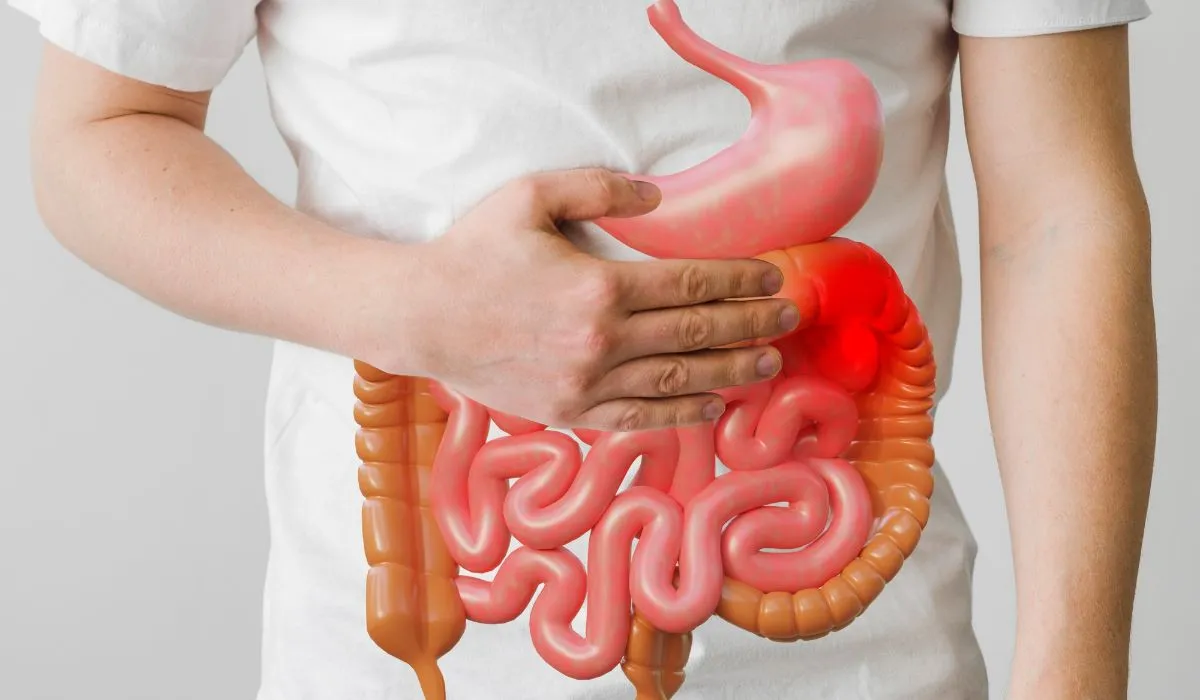
Introduction
The stomach is an essential part of the digestive system. It is located in the upper part of the abdomen and stores and passes the food you eat to the intestines. A malfunction in the stomach may cause indigestion and a plethora of other Gastric Diseases.
Simply put, Gastric Diseases are diseases of the stomach. It may occur due to various reasons like acid reflux, stress, inappropriate diet, etc. A prolonged gastric disease may cause distress and fatigue to the individual. Hence, it requires immediate treatment.
Request an Appointment at Smiles
What are the types of Gastric Diseases?
- ● Gastritis: It occurs when there is an inflammation in the lining of the stomach.
- ● Gastroesophageal reflux disease: It occurs when the acid and bile from your stomach move to the esophagus.
- ● Peptic ulcer: A breakdown in the inner lining of the stomach can cause a peptic ulcer.
- ● Gastroenteritis: When a virus enters your stomach, it may cause inflammation in your stomach and intestines. This condition is called gastroenteritis.
- ● Gastroparesis: It occurs when the stomach does not empty or takes too long to empty.
- ● Stomach cancer: An overgrowth of cells in the inner lining of the stomach can lead to stomach cancer.
What are the Causes of Gastric Diseases?
- ● Stress: High levels of stress can trigger the adrenal gland to release a hormone called cortisol. The cortisol released in the bloodstream can cause nausea, abdominal pain, constipation, and several other symptoms.
- ● Improper diet: A diet low in fiber and high in fats, spices, and sugar may cause stomach pain and acidity.
- ● Lactose intolerance: An inability to digest milk and dairy products can cause indigestion in the stomach.
- ● Bacterial or viral infection: An overgrowth of bacteria or entry of virus in the stomach can inflame and cause various diseases in the stomach.
- ● Genetics: If your parents or relatives suffer from stomach cancer or any other gastric disease, it may increase your risk of developing it.
- ● Pregnancy: The hormones released during pregnancy may cause acid reflux or indigestion in the body.
- ● Diabetes: People who suffer from type 1 or type 2 diabetes are also at a greater risk of suffering from gastric diseases.
What are the Symptoms of Gastric Diseases?
- ● Bleeding in the stool
- ● Heartburn
- ● Nausea and vomiting
- ● Diarrhoea
- ● Dark or clay-coloured stool
- ● Chest pain
- ● Indigestion and constipation
- ● Loss of appetite
- ● Weight loss
- ● Bloating
- ● Anaemia
How is Gastric Diseases Diagnosed?
- ● Blood tests: Blood tests will help your doctor detect excess acid or enzymes that may indicate gastric malfunction.
- ● Stool tests: Stool tests will also help your doctor detect any problem in your stomach through a sample of your stool.
- ● Ultrasound: Ultrasound is one of the most commonly used diagnostic tools for bile duct stones. In this procedure, images of the abdomen are produced using high-frequency sound waves. It helps detect abnormalities in the abdomen.
- ● Abdominal CT scan: A CT scan helps produce cross-sectional images of the abdomen. It uses infrared rays to produce high-quality images and can help detect abnormalities accurately in the abdominal region.
- ● Endoscopy: During endoscopy, your doctor will pass an instrument with a camera (endoscope) through the esophagus into your stomach. The endoscope transmits images to an external screen and helps detect swollen veins or stomach damage.
How is Gastric Diseases Treated?
Non-surgical treatment
- ● Medications: Your doctor may prescribe medicines based on the cause of your disease. If you have a bacterial infection, your doctor will prescribe antibiotics. For acid reflux diseases, antacids may be prescribed.
Surgical treatment
- ● Gastric bypass surgery: In this procedure, your doctor will make an incision in your abdomen and cut the lower section of your stomach. He will then sew the upper portion directly with the small intestine. This helps the food to directly enter the intestines bypassing most of the stomach.
- ● Sleeve gastrectomy: In this procedure, your doctor will remove about 15% of your stomach. Once removed, the remaining portion will appear like a tube.
- ● Biliopancreatic diversion with duodenal switch: In this procedure, your doctor will remove more than 80% of your stomach. He will then connect the opening of the stomach (duodenum) directly to the small intestine. This allows the food to enter the intestines from the esophagus directly.
What is the Results of Gastric Diseases Treatment?
What Are the Risk Associated with Gastric Diseases Treatment?
- ● Excessive bleeding from the abdomen
- ● Bacterial infections
- ● Clotting of blood
- ● Severe abdominal pain
- ● Allergic reactions to anesthesia
- ● Death (rare)
Long-term risks and complications of surgery for Gastric Diseases depend on the type of surgery and the severity of the disease. They can include:
- ● Bowel obstruction
- ● Development of ulcers
- ● Perforation in the abdominal walls
- ● Gallstones
- ● A decrease in blood sugar
- ● Gastrointestinal leaks
Request an Appointment at Smiles
FAQ's
What Happens if Gastric Diseases are left Untreated?
- ● Acute chest and abdominal pain
- ● Bleeding
- ● Dehydration
- ● Stomach inflammation
What are the Foods to Avoid if you have Gastric Diseases?
- ● Spicy foods
- ● Caffeine
- ● Carbonated and sugary drinks
- ● Processed foods
What are the Preventive Measures for Gastric Diseases?
- ● Exercise regularly
- ● Drink plenty of water
- ● Consume high-fiber foods
- ● Eat smaller, more frequent meals
What is the most Common Type of Gastric Disorder?
Can Smoking and Alcohol Consumption Cause Gastric Diseases?
Need Help?
For any Information about our Locations, Doctors or Treatments.
